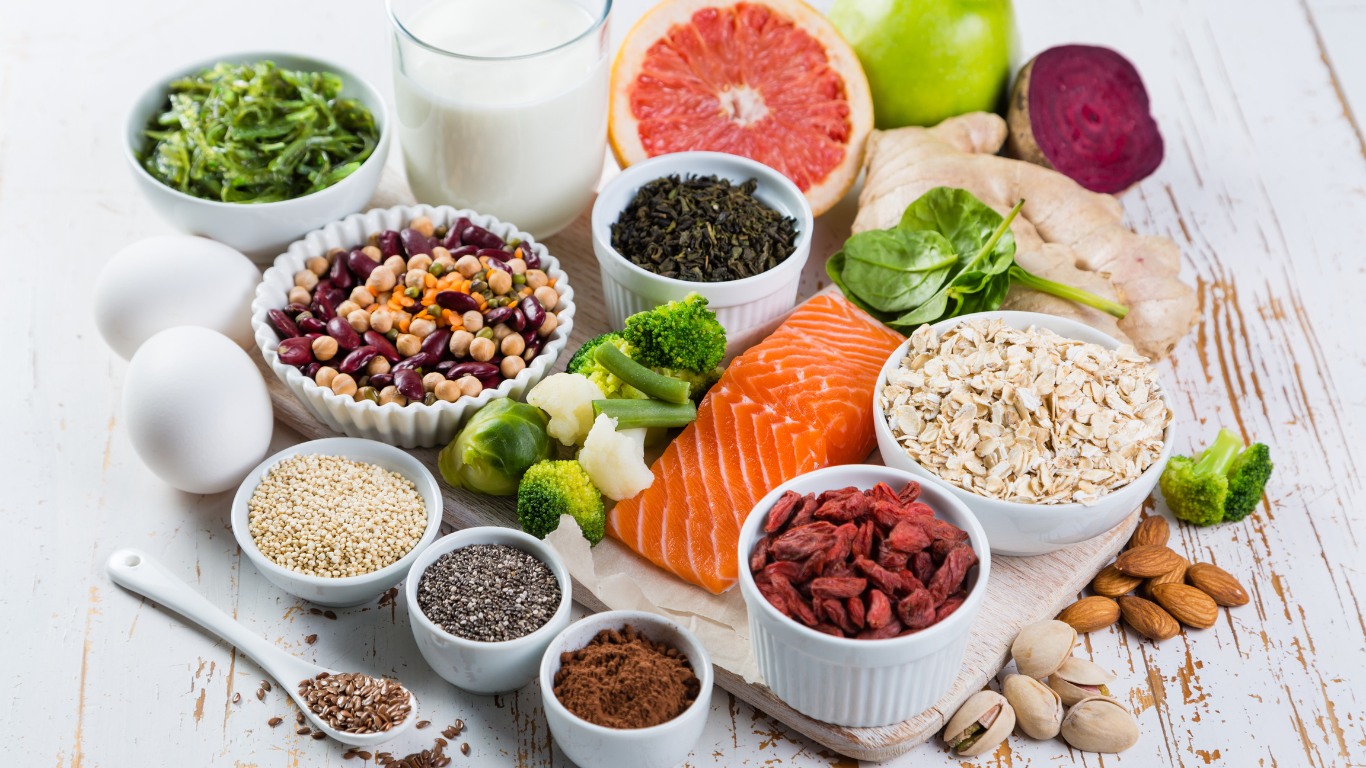Disclosure:
Thank you for reading this post, don't forget to subscribe!
Some of the links on this website are affiliate links. This means that if you click on the link and make a purchase, we may receive a small commission at no extra cost to you. Your support helps us keep the site running.Learn more on my Privacy Policy and Affiliate Disclosure page. Thank you for your support!
Nutrition plays a vital role in our overall health and well-being. It’s not just about eating; it’s about fueling your body with the right nutrients to thrive. In this blog post, we’ll explore the power of nutrition, how to make informed dietary choices, and practical tips to help you achieve optimal health. Whether you’re looking to improve your energy levels, boost your immune system, or simply feel better in your skin, understanding nutrition is the first step.
Why Nutrition Matters
Nutrition is the foundation of good health. The food we consume provides our bodies with the energy and nutrients needed to function properly. A balanced diet can help prevent chronic diseases, support mental health, and enhance overall quality of life. Here are some key reasons why nutrition matters:
- Supports Immune Function: A well-nourished body is better equipped to fight off infections and illnesses.
- Boosts Energy Levels: Proper nutrition fuels your body, providing the energy needed for daily activities and exercise.
- Promotes Healthy Weight: A balanced diet helps maintain a healthy weight, reducing the risk of obesity-related diseases.
- Enhances Mental Clarity: Nutrients play a crucial role in brain health, affecting mood, memory, and cognitive function.
read next:
Nutrition and Recovery for Glute Development: A Comprehensive Guide
Developing strong, well-shaped glutes is not only about intense workouts. While exercises…
The Ultimate Guide to Balanced Nutrition: Tips, Benefits, and Meal Ideas
Nutrition plays a vital role in our overall health and well-being. A…
Essential Nutrients for Optimal Health
To fuel your body effectively, it’s important to understand the essential nutrients that contribute to overall health. Here’s a breakdown of the key nutrients you should include in your diet:
1. Carbohydrates
Carbohydrates are the body’s primary source of energy. They are found in foods like fruits, vegetables, whole grains, and legumes. Opt for complex carbohydrates, such as whole grains, which provide sustained energy and are rich in fiber.
Keywords: carbohydrates, energy source, whole grains
2. Proteins
Proteins are essential for building and repairing tissues, making them crucial for overall health. Include a variety of protein sources in your diet, such as lean meats, fish, eggs, dairy, legumes, and nuts.
Keywords: proteins, tissue repair, lean meats
3. Fats
Healthy fats are important for brain health, hormone production, and nutrient absorption. Incorporate sources of healthy fats, such as avocados, nuts, seeds, and olive oil, into your meals.
Keywords: healthy fats, brain health, nutrient absorption
4. Vitamins and Minerals
Vitamins and minerals are essential for various bodily functions, including immune support, bone health, and energy production. Aim to consume a colorful variety of fruits and vegetables to ensure you’re getting a wide range of nutrients.
Keywords: vitamins, minerals, immune support
5. Water
Hydration is often overlooked but is crucial for overall health. Water helps regulate body temperature, transport nutrients, and remove waste. Aim to drink at least 8 cups of water a day, and more if you’re active.
Keywords: hydration, water intake, overall health
Meal Planning for Success

One of the best ways to ensure you’re getting the right nutrients is through meal planning. Here are some tips to help you create a balanced meal plan:
1. Set Goals
Determine your health goals, whether it’s weight loss, muscle gain, or simply eating healthier. This will guide your meal planning process.
2. Create a Balanced Plate
Aim for a balanced plate that includes a source of protein, healthy fats, and plenty of fruits and vegetables. This will help you meet your nutritional needs.
3. Prepare in Advance
Set aside time each week to prepare meals and snacks. This will save you time during busy days and help you avoid unhealthy food choices.
4. Keep It Simple
Don’t overcomplicate your meals. Focus on simple, whole foods that are easy to prepare and delicious.
5. Stay Flexible
Life can be unpredictable, so be flexible with your meal plan. It’s okay to make adjustments as needed.
For more tips on meal planning, check out our article on Healthy Meal Prep Ideas.
Common Nutrition Myths Debunked
With so much information available, it’s easy to fall for nutrition myths. Here are some common misconceptions and the truth behind them:
Myth 1: Carbs Are Bad for You
Truth: Carbohydrates are essential for energy. The key is to choose complex carbohydrates over simple sugars.
Myth 2: All Fats Are Unhealthy
Truth: Healthy fats are important for your body. Focus on sources like avocados, nuts, and olive oil.
Myth 3: You Need to Eliminate Entire Food Groups
Truth: Moderation is key. Instead of eliminating food groups, focus on balance and portion control.
For more information on nutrition myths, visit the Harvard Health Blog.
The Role of Superfoods

Superfoods are nutrient-dense foods that provide health benefits beyond basic nutrition. Incorporating superfoods into your diet can enhance your overall health. Here are a few superfoods to consider:
- Berries: Rich in antioxidants, vitamins, and fiber.
- Kale: Packed with vitamins A, C, and K, as well as calcium and iron.
- Quinoa: A complete protein source that’s gluten-free and high in fiber.
- Salmon: High in omega-3 fatty acids, which are beneficial for heart health.
Keywords: superfoods, nutrient-dense foods, antioxidants
explore more:
Practical Tips for Healthy Eating
Making healthy eating choices doesn’t have to be complicated. Here are some practical tips to help you stay on track:
- Listen to Your Body: Pay attention to hunger and fullness cues to avoid overeating.
- Practice Mindful Eating: Slow down and savor your meals to enhance enjoyment and satisfaction.
- Limit Processed Foods: Focus on whole, minimally processed foods for better nutrition.
- Stay Informed: Educate yourself about nutrition to make informed choices.
Conclusion
Take Charge of Your Nutrition
The power of nutrition is undeniable. By understanding the essential nutrients your body needs and making informed dietary choices, you can fuel your body for optimal health. Remember, it’s not about perfection; it’s about progress. Start small, set achievable goals, and gradually incorporate healthier habits into your daily routine.
Are you ready to take charge of your nutrition? Start by planning your meals for the week and incorporating more whole foods into your diet. Share this post with friends and family to spread the word about the power of nutrition, and explore more content on our site for additional tips and resources!
more about:
HEALTH / WELLNESS / FITNESS / NUTRITION
share this article














